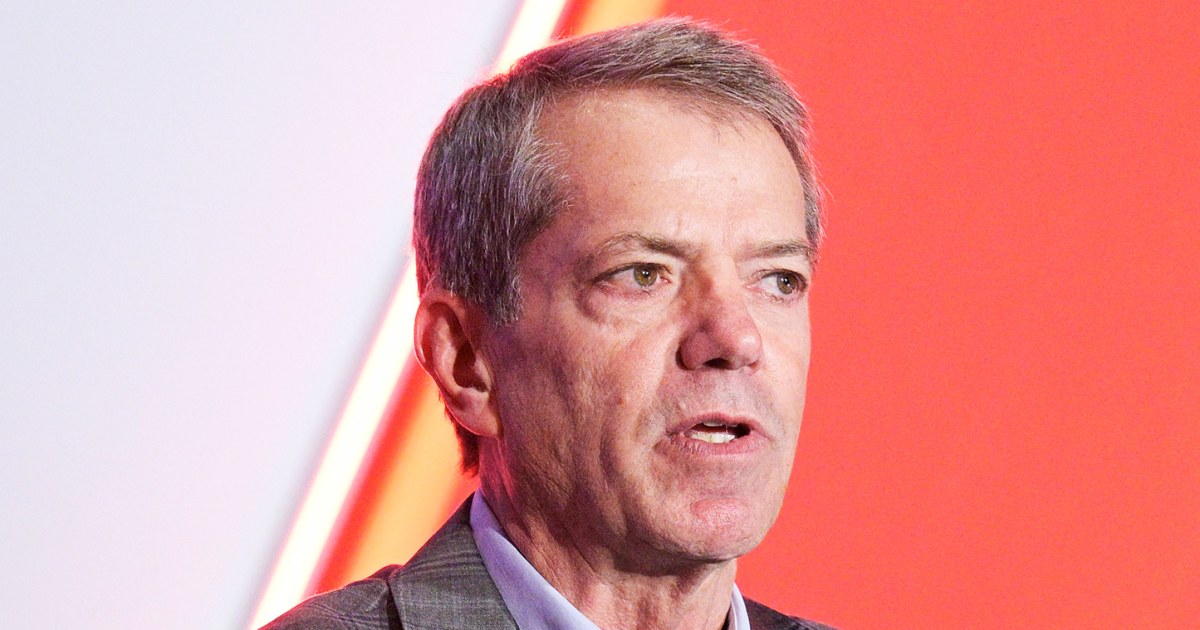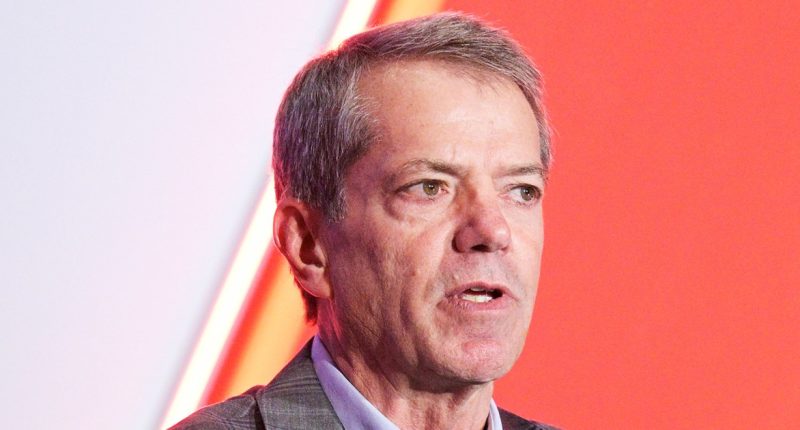
Former President Donald Trump and Nebraska Gov. Jim Pillen are calling on the state’s legislature to change the way Nebraska doles out its Electoral College votes, a move that would almost certainly benefit Trump in his 2024 presidential bid.
While most states dole out all their Electoral College votes to the statewide winner of the presidential vote, Nebraska and Maine give out one electoral vote to the candidate who wins each congressional district.
Republicans have long sought to change the law, which has given Democratic presidential candidates a shot at winning one Electoral College vote — from the Omaha-based congressional district — in the otherwise red state. That’s happened twice in history, including in 2020, when President Joe Biden won the district’s electoral vote over Trump, meaning Trump’s 58% support statewide got him four of the five Nebraska electoral votes.
Republicans are upping the pressure on the state’s nonpartisan, unicameral legislature to make the change before this fall’s presidential election.
But despite the pressure from Republican heavy hitters, the push could fall short as the legislative session draws to a close, after the previously introduced bill languished unnoticed before the sudden rush of attention.
Hours after Republican activist Charlie Kirk put out a call for his supporters to contact Pillen to support the change, the governor responded with a statement of his own reiterating support for the bill and calling on lawmakers to pass it. Shortly after, Trump lent his backing to the efforts on social media.
“Governor Jim Pillen of Nebraska, a very smart and popular Governor, who has done some really great things, came out today with a very strong letter in support of returning Nebraska’s Electoral Votes to a Winner-Take-All System,” Trump wrote on his Truth Social platform.
“Most Nebraskans have wanted to go back to this system for a very long time, because it’s what 48 other States do — It’s what the Founders intended, and it’s right for Nebraska. Thank you Governor for your bold leadership. Let’s hope the Senate does the right thing.”
Kirk said in a statement to NBC News that he has been focused on the issue “for some time.”
“I realized two things researching for my show: There was already a bill drafted, and the legislature was still in session,” Kirk said. “So I decided to do something about it. Credit to Governor Pillen and President Trump for acting quickly.”
The electoral math
The debate is functionally over just one of the 538 Electoral College votes that decide the presidency. But the change could have far greater repercussions than it may initially seem.
Biden won 303 Electoral College votes in 2020 to Trump’s 235, but the electoral landscape has shifted significantly since then. Battleground state polling shows states like Arizona, Georgia, Pennsylvania, Michigan, Nevada and Wisconsin — states Trump lost in 2020 — well within the Republican’s reach this fall.
And if Trump is able to win back the key Sun Belt states he lost in 2020 — Arizona, Georgia and Nevada — then Nebraska’s split electoral vote becomes of paramount importance.
In that scenario and with the current rules in Nebraska, Biden would win the presidency with 270 Electoral College votes to Trump’s 268. But if Nebraska awarded all its votes to the statewide winner, that would leave both candidates with 269 votes, an outcome that would send the presidential election to the House of Representatives.
That’s one reason why Democrats are blasting the potential change, as they also argue the current system keeps Nebraska relevant in the presidential race, which they believe is good for the state.
“The [Nebraska Republican Party] are eyeing #NE02 in this latest attempt to dilute our state’s influence nationwide. #NE02 has gone to Obama in 2008 and Biden in 2020. They know
[Biden] can win in 2024. They can’t stand that a Blue Dot exists in the state. We will continue to protect it,” the state Democratic Pparty wrote on X, the social media platform formerly known as Twitter, Tuesday night.
Jim Messina, who served as then-President Barack Obama’s 2012 campaign manager, criticized the move by Nebraska Republicans in an appearance on MSNBC’s “Morning Joe” and said that “changing the rules 200 days before the election is ridiculous.”
“This is what the modern Republican Party has become, they’re now changing the rules in the middle trying to benefit themselves,” Messina said.
“There are real simulation problems when you look at the map, that one electoral vote really matters in the combination of other things. Then you need another state. The easiest pathway to victory has always been the midwestern three states combined with Nebraska,” Messina continued.
Procedural hurdles
But despite the pressure campaign from Republicans, it’s unclear whether the bill can actually become law, thanks to a combination of questions about support, how the bill would work through committee, and the fact the legislative session ends in just two weeks.
“It’s just all about timing and management when it comes to getting bills successfully through the unicameral,” state Sen. Tom Brewer, who helms the legislative committee that’s considering the bill, told the Lincoln Journal-Star. “And it’s past the 11th hour with this. We just don’t have a way of making it fit.”
While the bill was first introduced in January of last year, there’s been no substantive movement on it since a committee hearing last March. A legislative staffer who requested anonymity to speak candidly told NBC News that the bill did not receive any attention after last year’s hearing until Tuesday following Kirk’s program.
The staffer noted that there is “no time” for the Government, Military and Veterans Affairs Committee to act on the legislation. While it’s possible the bill could be attached to a measure currently on the floor, that is also unlikely given the opposition from Democrats and independents in the chamber.
And state Sen. Loren Lippincott, who authored the bill, told the Journal-Star there currently isn’t enough support for the bill in the legislature to overcome a filibuster, even if supporters try to circumvent the procedural hurdles by attaching the language as an amendment to a bill that’s already moving on the floor.
Nebraska lawmakers have repeatedly tried to return the state to granting all its Electoral College votes to the statewide winner ever since the change in 1991. While the legislature successfully passed legislation to do just that in 1995, Democratic Gov. Ben Nelson vetoed it.
Source: | This article originally belongs to Nbcnews.com










